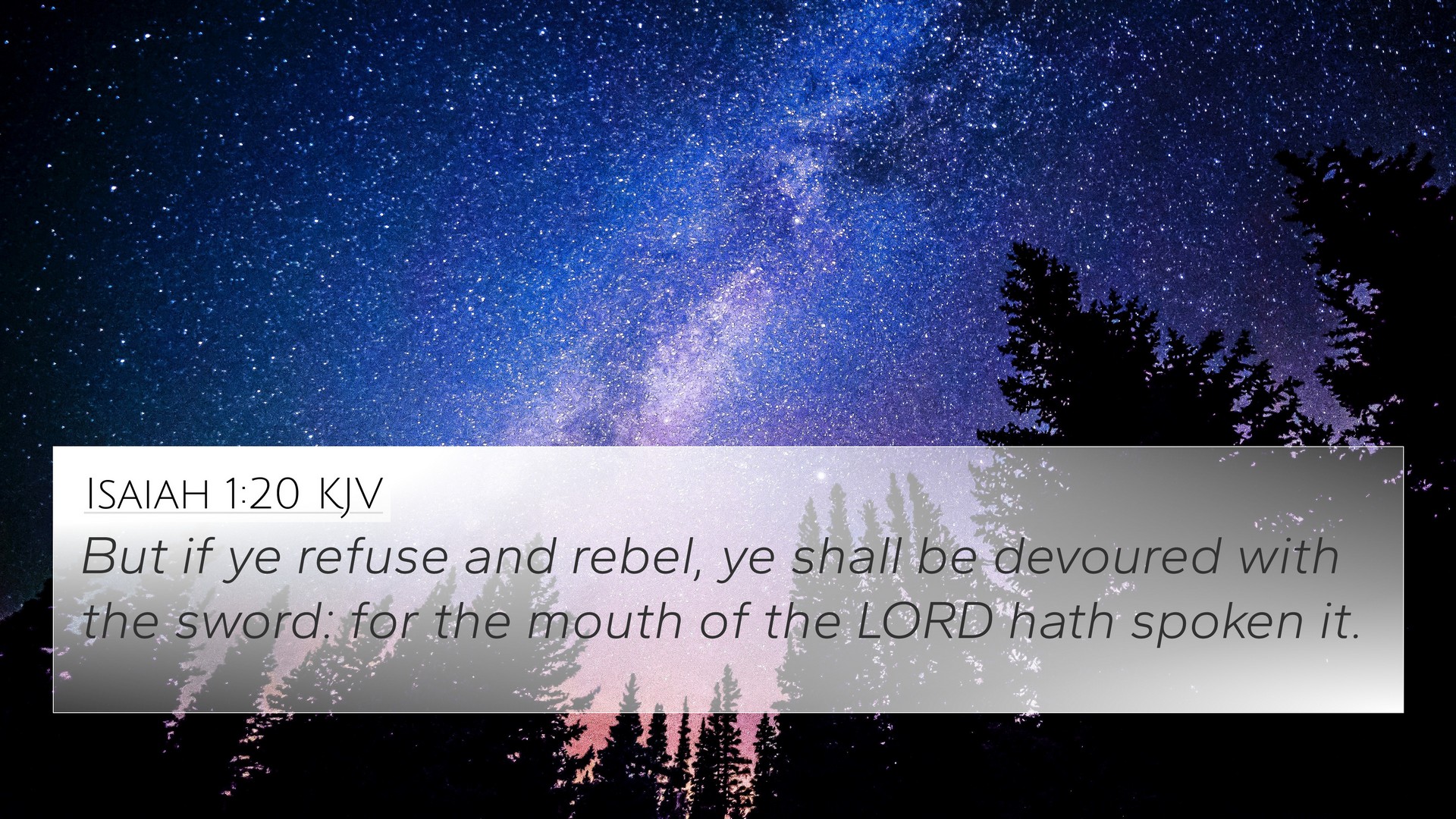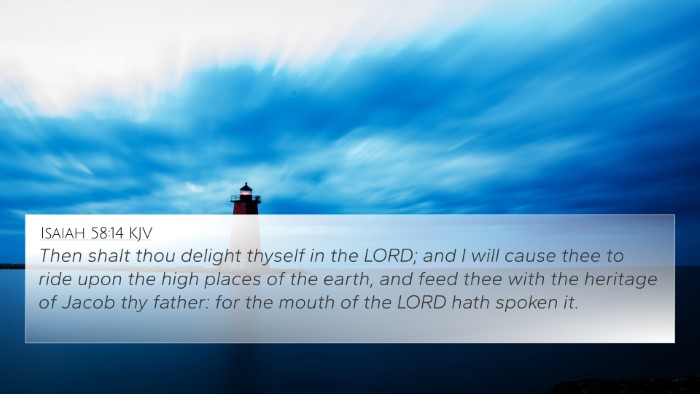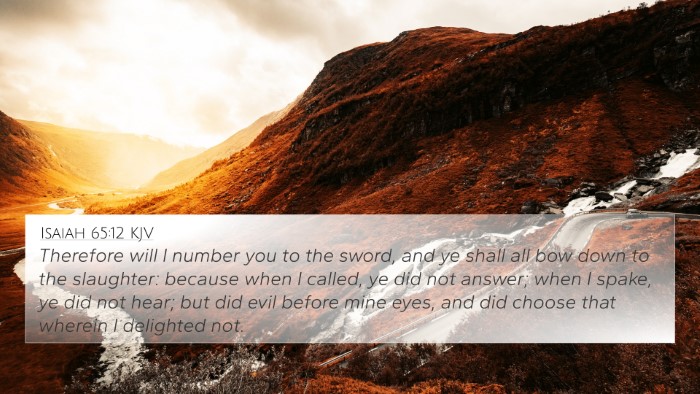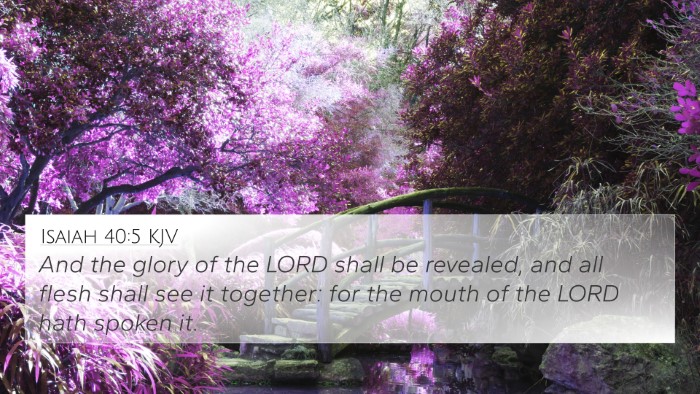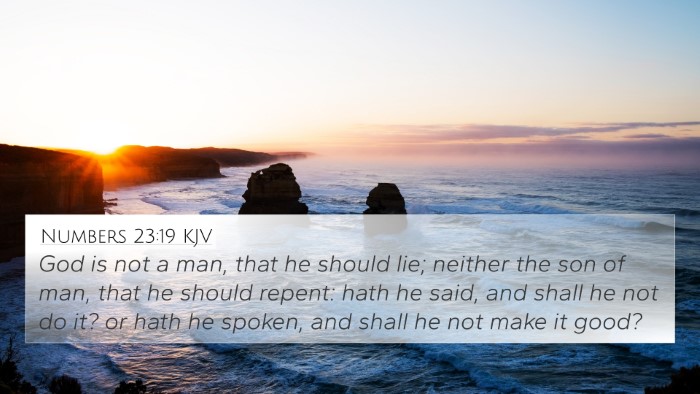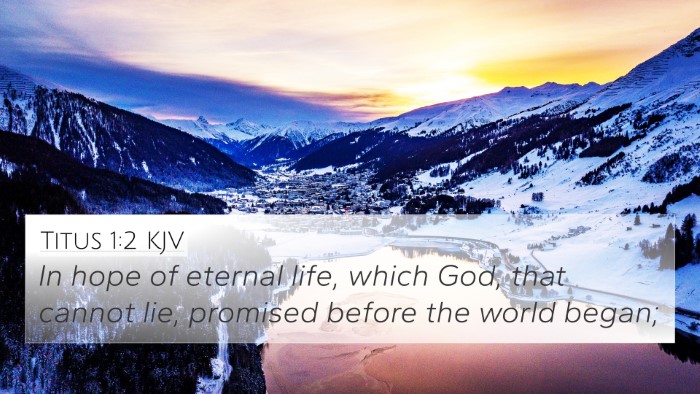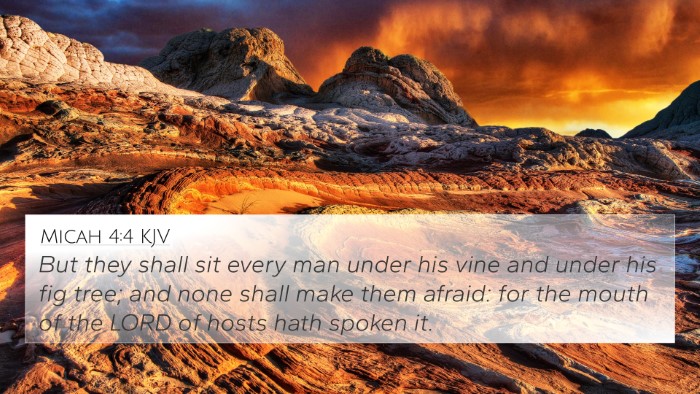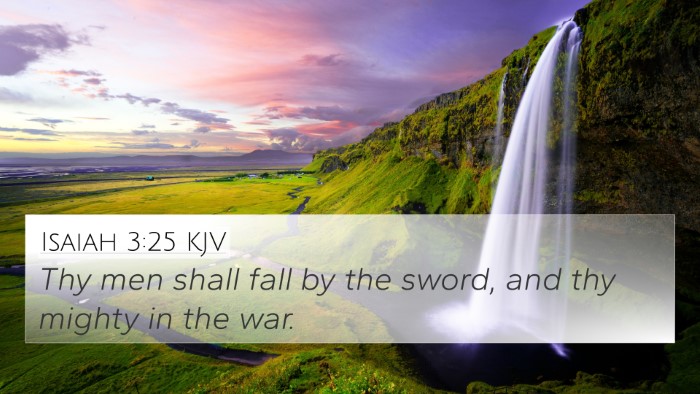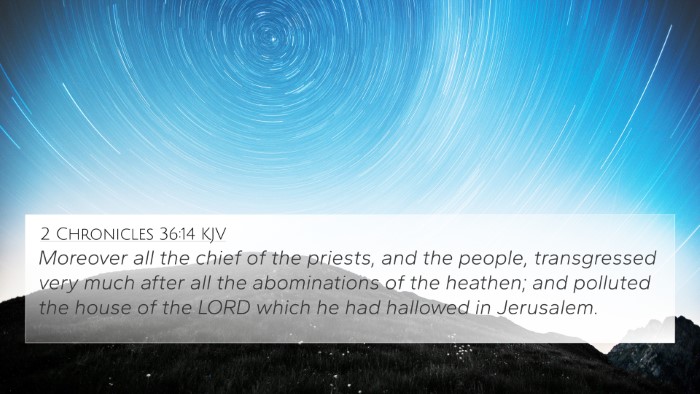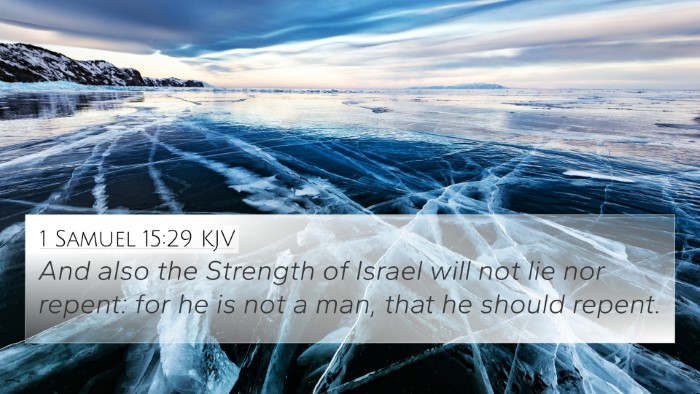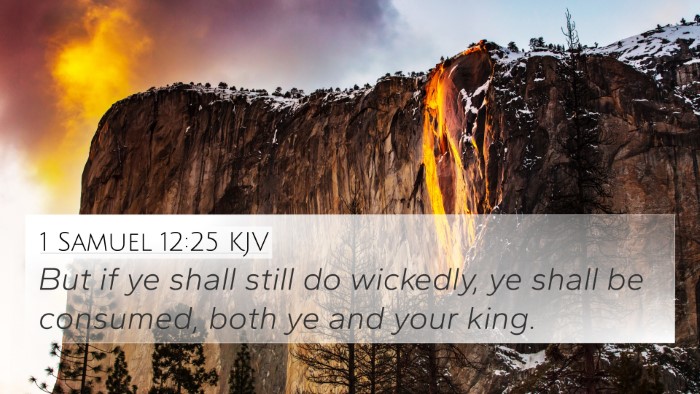Understanding Isaiah 1:20
The verse Isaiah 1:20 (KJV) reads: "But if ye refuse and rebel, ye shall be devoured with the sword: for the mouth of the Lord hath spoken it." This powerful statement encapsulates the dire consequences of disobedience to God's commands and the importance of heeding His warnings. Below, we explore the insights from public domain commentaries on this verse and its connections to other scriptures.
Summary of Isaiah 1:20
Isaiah calls upon the people of Israel to recognize the gravity of their rebellion against God. The choice presented is stark: acceptance of God's guidance and protection or destruction as a result of defiance. This emphasis on choice underscores the nature of divine justice—God desires obedience, but also allows for free will, leading to consequences that are just and fair.
Insights from Public Domain Commentaries
Matthew Henry's Commentary
Henry emphasizes the seriousness of the call to repentance. He notes that refusal to obey is akin to rebellion against divine authority, which ultimately leads to one's downfall. The imagery of being "devoured with the sword" reflects both physical and spiritual implications of judgment. Furthermore, this highlights the inevitability of divine judgment for those who disregard God's word.
Albert Barnes' Commentary
Barnes comments on the certainty of God's proclamations: "the mouth of the Lord hath spoken it" serves as a guarantee of the truth and certainty of the consequences cited. What is more, Barnes points out that this divine warning is a reflection of God's mercy; it offers a chance for repentance before judgment occurs. The choice between life and death, blessing and cursing, is a pervasive theme throughout scripture.
Adam Clarke's Commentary
Clarke elaborates on the metaphor of the "sword." He describes it as representing swift and sure destruction—not just physical harm, but also spiritual ruin. He stresses that God's intent is not to destroy but to correct and guide His people back to righteousness. Clarke's insights connect this theme of correction to other biblical narratives, reinforcing the call to repentance as a continual thread throughout scripture.
Cross-References for Isaiah 1:20
This verse relates to several other scriptures, highlighting the theme of obedience and its consequences:
- Deuteronomy 30:19-20 - A call to choose life over death, paralleling the choice in Isaiah.
- Jeremiah 6:19 - Warnings of impending judgment for not listening to God.
- Ezekiel 18:30 - A call to repentance and the desire for God's people to turn from their evil ways.
- Romans 2:6-8 - New Testament affirmation of judgment according to works, reinforcing the consequences of disobedience.
- Galatians 6:7 - "Be not deceived; God is not mocked: for whatsoever a man soweth, that shall he also reap."
- James 4:7 - Encouragement to submit to God and resist the devil, reflecting themes of choice and obedience.
- Luke 13:3 - A call to repentance, indicating that perishing is contingent on one's response to God's warning.
Connections Between Bible Verses
Exploring the relationships among the verses allows for a deeper understanding of the themes. Isaiah 1:20 links with the aforementioned verses by creating a unified message regarding the consequences of rebellion and the call for repentance across both the Old and New Testaments.
Thematic Bible Verse Connections
The themes present in Isaiah 1:20 are prevalent throughout the Bible, repeatedly emphasizing the importance of obedience, the reality of divine judgment, and the opportunity for repentance. These verses demonstrate a coherent and consistent message from the Scriptures—reinforcing how God's desire is for a faithful and obedient people.
Tools for Bible Cross-Referencing
For those studying Isaiah 1:20 and its connections, here are some helpful tools:
- Bible concordance: A useful resource to find cross-references in the Bible.
- Bible cross-reference guide: A systematic approach to identifying thematic links among scriptures.
- Cross-reference Bible study methods: Techniques for digging deeper into the meanings and connections between verses.
- Bible reference resources: Tools made for easy access to related scripture passages.
Conclusion
Isaiah 1:20 serves as a powerful reminder of the choices before us—obedience leads to life and security, while rebellion invites destruction. Leveraging cross-references enriches our understanding and illuminates the overarching narrative of redemption found in the Scriptures. By considering the insights from various public domain commentaries, we gain a multifaceted perspective on the lessons within this profound verse.
